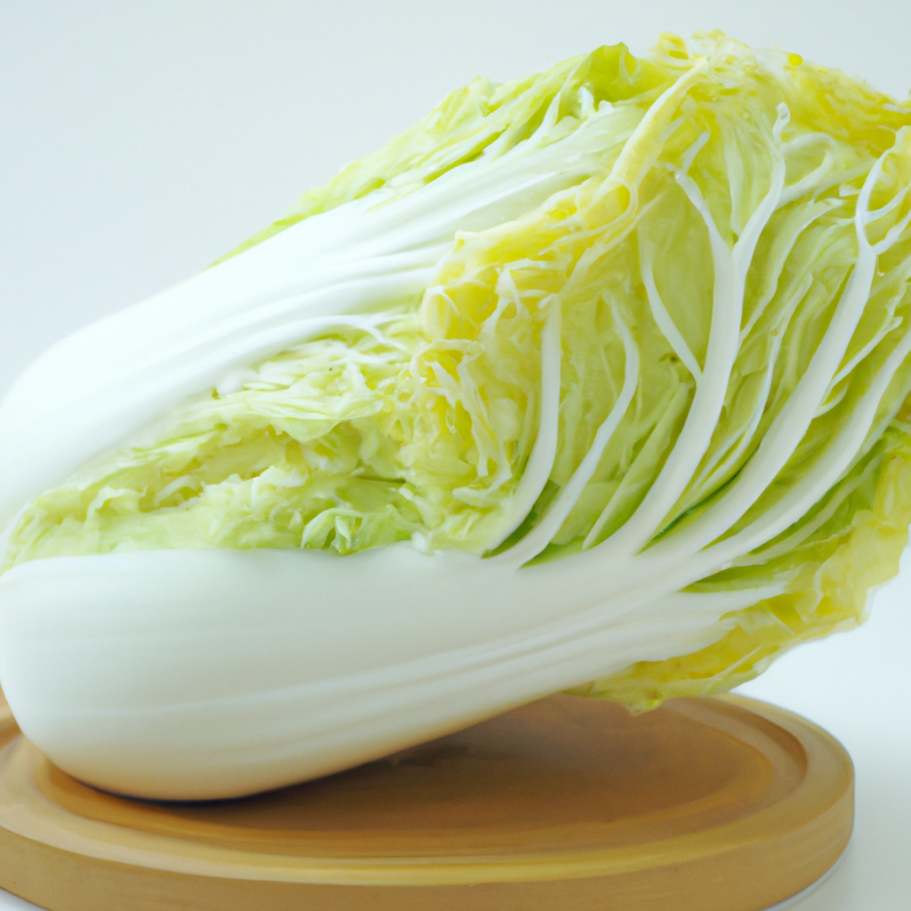Health Benefits of Black Pepper
Black pepper is not only a popular spice but also offers several health benefits. It is packed with antioxidants that can help improve your overall health. Some of its advantages include reducing swelling, helping to manage blood sugar levels, and supporting brain health, among other things. Black pepper is one of the most widely used spices around the globe. It is made by grinding the dried berries from the plant called Piper nigrum. The spice has a sharp and slightly spicy taste that complements many different dishes.
However, black pepper is more than just a common ingredient in the kitchen. Often referred to as the “king of spices,” it has been used in ancient Ayurvedic medicine for thousands of years because of its strong and beneficial plant properties.
May
2025
10 Science-Backed Benefits of Walnuts
Walnuts are fantastic for your health. They are packed with good nutrients that make them stand out from other nuts. They have a lot of antioxidants, which help protect your cells, and they are full of omega-3 fatty acids, which are great for your body. These nutrients are key to the many health benefits that walnuts bring. Eating walnuts can help lower bad cholesterol (known as LDL) and reduce inflammation, which is good for your gut. They may also lower the risk of some types of cancer and help control your appetite and weight. Plus, they can help manage the risk of type 2 diabetes. Walnuts can also help keep your blood pressure in check and are good for your brain health. They are beneficial for male fertility as well. On top of all that, walnuts provide healthy fats along with important vitamins and minerals that your body needs to stay well.
April
2025
The Health Benefits of Paprika
Paprika is a vibrant spice, packed with vitamin A, capsaicin, and carotenoid antioxidants. These powerful compounds are known to combat inflammation and enhance your cholesterol levels, support eye health, and regulate blood sugar, among numerous other health advantages.
Derived from the dried peppers of the Capsicum annuum plant, paprika is available in sweet, smoked, and hot varieties, showcasing a spectrum of colours including red, orange, and yellow. This versatile spice is a staple in cuisines across the globe, particularly in rice dishes and hearty stews. Its richness in antioxidants, vitamins, and minerals is unmatched. Here are eight scientifically-proven health benefits of incorporating paprika into your diet.
April
2025
Shiitake Mushrooms - Health Benefits and Nutrition
Shiitake mushrooms have a deep, earthy taste and are often said to taste a bit like meat. They have big caps that measure about 5 to 13 centimetres across and come in shades of brown, from light to dark, with a pale cream underside that looks beautiful against the darker top. These mushrooms are also very healthy; they are particularly rich in natural copper, which is important for keeping our blood vessels, bones, and immune system in good shape.
April
2025
Ultimate Guide: Pairing Cheese with Fruit
Combining cheese and fruit is a lovely way to enjoy new flavours and create a tasty experience. This guide will look at the best pairings of fruit and cheese, share tips on making a great cheese board, and suggest some interesting combinations. Whether you’re preparing a cheese board for guests, searching for a tasty snack, or wanting to try out different flavours, mixing fruit and cheese opens up a world of fun and delicious options. Keep trying different pairings, jot down your favourites, and, most importantly, enjoy the delicious adventure of discovering what works best for you.
March
2025
Why Should You Avoid Liquid Calories
Liquid calories come from the drinks we consume each day. This includes items like fizzy drinks, fruit juices, sports drinks, and alcoholic beverages. These calories can accumulate fast and are often overlooked. Usually, these drinks have few nutrients, meaning they don't provide much in the way of fibre, protein, vitamins, or minerals, and some can even be high in fat. When we drink our calories, our bodies don’t get the same signals to stop eating as they do when we eat solid food. Because of this, it can be all too easy to end up consuming a lot more calories than we realise.
March
2025
The Best Sources of Protein – these foods contain more protein than eggs
Protein is an essential nutrient that helps support your immune system, build and repair muscles, and make you feel full. Eggs are a simple and convenient source of protein, but there are many other foods that pack even more protein into each serving. These include plant-based options like black beans, lentils, and quinoa, as well as animal products like chicken, fish, and beef. To get the most health benefits, try to include a variety of protein sources in your diet.
March
2025
Benefits Of Black Radish For Skin, Hair, And Health
For centuries, people have enjoyed this root vegetable for its refreshing qualities. You probably know about the popular white radish and the many dishes it’s used in, but have you heard of the benefits of black radish? There’s also a variety called black Spanish radish! While its dark colour might not look very appealing, its health advantages should definitely encourage you to give it a chance! To help you learn more about this lesser-known radish, we’ve gathered all the important information and put it together for you in one easy-to-read page. Keep reading to discover how black radish can improve your health and the different ways you can add it to your meals!
March
2025
Health Benefits and Uses of Sage
Sage is an important herb used in many types of cooking around the world. It has antioxidants, which might help keep our mouths healthy and support brain health. It may also assist in reducing cholesterol and blood sugar levels. You might hear sage called common sage, garden sage, or by its scientific name, Salvia officinalis. This herb is part of the mint family, which includes other familiar herbs like oregano, rosemary, basil, and thyme. Sage has a strong smell and a rich taste, which is why cooks often use it in small quantities. Despite this, it is full of important nutrients and beneficial compounds.
February
2025
Amazing Facts About Napa Cabbage Nutrition
Napa cabbage, also known as Chinese cabbage or celery cabbage, is a type of vegetable that belongs to the mustard family. This cabbage has large, wrinkled leaves and thick, juicy stems. It has a sweet, mild taste and a crunchy texture when eaten raw. When cooked, its flavour is gentler compared to regular green cabbage. You can enjoy Napa cabbage in many ways: it’s great in salads, as part of side dishes, and works well in stir fries, soups, and even pickled. If you have green cabbage on hand, Napa cabbage can easily replace it in many recipes. Plus, it is a healthy choice, having only 20 calories in a cup and no cholesterol. Napa cabbage is a good source of vitamins and minerals, making it a nutritious addition to your meals.

February
2025
Warning signs: you’re eating too many carbs
Don't get us wrong, we really love carbohydrates, or as we often call them, carbs. Who doesn’t? Whether it’s a warm baguette with butter, a big bowl of pasta, or crispy homemade chips, carbs can be so comforting and make us feel great. While our bodies need carbs to give us energy, it’s possible to have too much of a good thing. You might have heard the term 'carb overload'—that’s a sign to watch out. To help you stay healthy, we’ve put together some signs that could mean you're having too many carbs, along with how many carbs you should aim to eat in a day.

February
2025
Nutritious Snack: Clementines
Clementines are a hybrid of mandarins and sweet oranges. These small, bright orange fruits are easy to peel and taste sweeter than most other citrus fruits. They usually don't have seeds, making them a popular choice for children and their parents, as they provide a simple way to add fruit to a child's diet. Clementines are also packed with vitamin C; just one little fruit can give you 40% of your daily requirement. Vitamin C is important because it helps protect your body from harm and supports your immune system by fighting off free radicals, which are bad substances that can damage your cells. You can store clementines either at room temperature or in the fridge. No matter where you keep them, they're a tasty, easy, and healthy snack.

February
2025
The 13 Healthiest Root Vegetables
Turnips, ginger, and beets are root vegetables that grow beneath the ground. Including these root vegetables in your meals can be good for your health. People have enjoyed root vegetables for a long time because they taste great and are part of a healthy diet. Root vegetables are plants that we can eat that grow underground. Some common ones that you might know are potatoes, carrots, and onions. However, there are many other kinds too, each offering different nutrients and health benefits.

January
2025
Health Benefits of Beetroot
Beetroots stand out as a powerhouse of nutrients, brimming with antioxidants such as betalains that effectively combat cell damage and inflammation. Their remarkable health benefits are undeniable: they enhance stamina, reduce blood pressure, and provide significant protection against heart disease. There are countless ways to relish beetroot—whether roasted, grated, or incorporated into soups and salads, you can confidently incorporate this vibrant vegetable into your diet to reap its outstanding advantages.

January
2025
Omega-7 Fatty Acids - Sources and Benefits
Three, six, nine. When people think of omega fatty acids, they usually think of omega-3 and omega-6. However, there’s another type called omega-7 that is starting to gain attention. Omega-7 may offer some great health benefits, particularly for your heart, reducing inflammation, and helping with insulin sensitivity.

January
2025
What Are the Benefits of Lentils?
Lentils belong to the legume family and are full of nutrients. They contain B vitamins, folate, iron, and potassium, and are also rich in protein and fibre. Lentils are simple and quick to cook, and they are budget-friendly, making them a fantastic source of good protein for people all around the world. Eating more plant-based foods is connected to a lower chance of several health problems. These foods usually have lots of fibre, vitamins, and minerals, and many also contain antioxidants that can help reduce inflammation and may even fight cancer.

January
2025
Cutting down on sugar
If you're concerned about how much sugar you're eating, think about these three questions: Do you often have strong cravings for sweet things? Have you been adding more sugar to your drinks, like tea? Are you choosing sugary snacks instead of healthy meals? If you answered yes to these questions, try to focus on getting your sugar from natural sources instead of cutting out all sugar completely…

December
2024
Amazing Health Benefits of Berries
Berries are small, delicious, and brightly coloured – and they’re great for your health. They can help protect many parts of your body, from your brain to your heart. Enjoying a handful of berries gives you a lovely burst of sweetness. They work well for breakfast or as a treat after your meal. Plus, studies show that berries have many benefits. They can improve brain health, help lower the risk of cancer, and reduce blood pressure...

December
2024
What is a plant-based diet
Getting enough protein each day is important for your health. Good sources of healthy protein include eggs, nuts, lean meats, fish, dairy products, and some grains. Proteins are a big group of substances that play many important roles in our bodies. They help build and repair cells, support the immune system, enable movement, carry out chemical reactions, and help produce hormones. All proteins are made up of smaller parts called amino acids. There are nine amino acids that are essential, which means your body needs them but cannot make them by itself, so you have to include them in your meals...

December
2024
High protein-food
Getting enough protein each day is important for your health. Good sources of healthy protein include eggs, nuts, lean meats, fish, dairy products, and some grains. Proteins are a big group of substances that play many important roles in our bodies. They help build and repair cells, support the immune system, enable movement, carry out chemical reactions, and help produce hormones. All proteins are made up of smaller parts called amino acids. There are nine amino acids that are essential, which means your body needs them but cannot make them by itself, so you have to include them in your meals...

December
2024
Most Nutrient-Dense Vegetables
Most vegetables are packed with antioxidants and important vitamins and minerals, and many also have benefits for your health. While the vegetables we mentioned in the article are excellent choices full of nutrients, there are plenty of others that are just as good. For the best health results, aim to eat a mix of different vegetables so you can enjoy their unique benefits. Remember to make them a key part of a balanced diet...

December
2024
Ginger - health benefits
Ginger is a flowering plant that comes from Southeast Asia. It is often used to add flavour to both sweet and savoury dishes and is known for its many health benefits. Ginger is part of the same family as turmeric, cardamom, and galangal. This spice is praised for its ability to reduce inflammation and nausea among other things. It might also help with weight loss, managing arthritis, and easing menstrual symptoms, along with other potential advantages.

Nov
2024
Why Is Iron Important in Nutrition?
Our bodies need iron to make haemoglobin, which is a protein found in red blood cells. Haemoglobin helps carry oxygen from our lungs to other parts of our body. Iron is also important for making myoglobin, a protein that provides oxygen to our muscles. Plus, iron plays a key role in creating some hormones, which helps us stay healthy and keep our bodies working well.

Nov
2024
Banana - Benefits and health risks
Bananas are packed with important nutrients that can be good for your heart, help with blood pressure, and even lift your mood, among other things. While bananas have many health benefits, there can also be some risks for certain people. Eating bananas might help lower blood pressure and could even decrease the chance of getting cancer. In this article, we will explore the health benefits of bananas, like how they may improve heart health and help digestion. We will also look at some potential health risks that doctors have linked to bananas.

Nov
2024
Sourdough Bread
Sourdough bread is made by fermenting dough with naturally occurring lactobacilli and yeast. The fermentation process relies on a 'starter culture,' which can be maintained for many years, sometimes even centuries. This long fermentation contributes to the unique flavour profile of sourdough and offers various health benefits. Research suggests that consuming fermented foods like sourdough may reduce the risk of chronic diseases, including heart disease, stroke, and type 2 diabetes. Furthermore, these foods may also promote mental well-being, potentially helping to reduce stress and anxiety levels.

Nov
2024
Butternut Squash
Butternut squash is a variety of winter squash that grows on vines. It is characterized by its sweet and nutty flavor, which is reminiscent of pumpkin. The squash features tan-yellow skin and orange flesh, which contains seeds at the blossom end. As it ripens, the flesh deepens in color due to its high beta-carotene content, a provitamin A compound. Although botanically classified as a fruit, butternut squash is commonly used as a vegetable in culinary applications. It can be roasted, sautéed, or puréed for soups, such as squash soup, and it can also be mashed for use in casseroles, breads, muffins, and pies. It belongs to the same squash family as ponca, waltham, pumpkin, and calabaza. Nutritionally, butternut squash is rich in essential vitamins, minerals, and antioxidants, making it a flavourful addition to meals while being low in calories and high in fibre.

oct
2024
The health benefits of coriander
Coriander is an aromatic herb known for its high antioxidant content and various health benefits. It may assist in lowering blood sugar levels, combating infections, and supporting heart, brain, skin, and digestive health. This versatile herb is frequently utilized to enhance the flavour of dishes from various cuisines around the world.

oct
2024
The benefits of olive oil
Olive oil is a cornerstone of a healthy lifestyle, offering numerous benefits that contribute to overall well-being. Rich in monounsaturated fats, it supports heart health by reducing bad cholesterol levels and lowering the risk of cardiovascular diseases. Additionally, olive oil is packed with antioxidants like vitamin E and polyphenols, which promote bone health by enhancing calcium absorption and reducing inflammation. Its anti-inflammatory properties also extend to brain health, potentially lowering the risk of cognitive decline and neurodegenerative diseases. Furthermore, olive oil helps stabilize blood sugar levels, making it a beneficial addition for those managing diabetes or seeking to maintain steady energy levels throughout the day. Incorporating olive oil into your diet can thus be a delicious and effective way to support various aspects of health.

oct
2024
©Copyright. All rights reserved.
We need your consent to load the translations
We use a third-party service to translate the website content that may collect data about your activity. Please review the details in the privacy policy and accept the service to view the translations.








